News feed
There are few universities in the world where the history of an entire nation has been written
2024. 10. 24.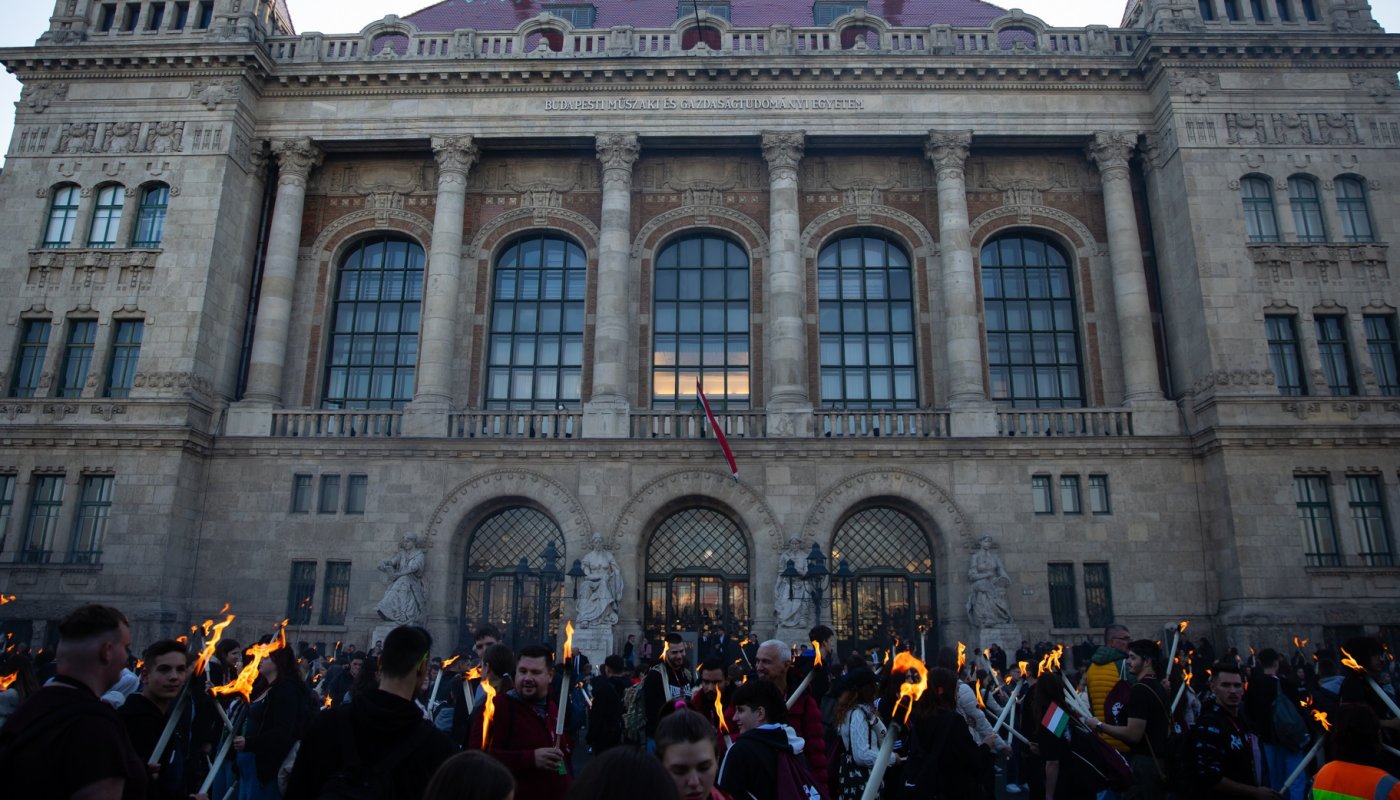
The revolution of 1956 was commemorated at the BME, one of the cradles of the events.
On Tuesday afternoon, in the presence of alumni and their families, representatives of '56 organizations and state leaders, the University of Technology held an official ceremony honoring the memory of the 1956 revolution.
Before the ceremony, Gábor Móczár, director general of the National Heritage Institute, Sándor M. Kiss and László Sömjéni, members of the National Memorial and Mercy Committee, Péter Harrach, president of the Committee, Charaf Hassan, rector of the BME, Miklós Verseghi-Nagy, chancellor of the university and Csongor Csáky, president of the Rákóczi Association paid tribute to the heroes of the revolution and freedom struggle with a procession at the 1956 memorial located on Műegyetem Quay, next to the university's central building.
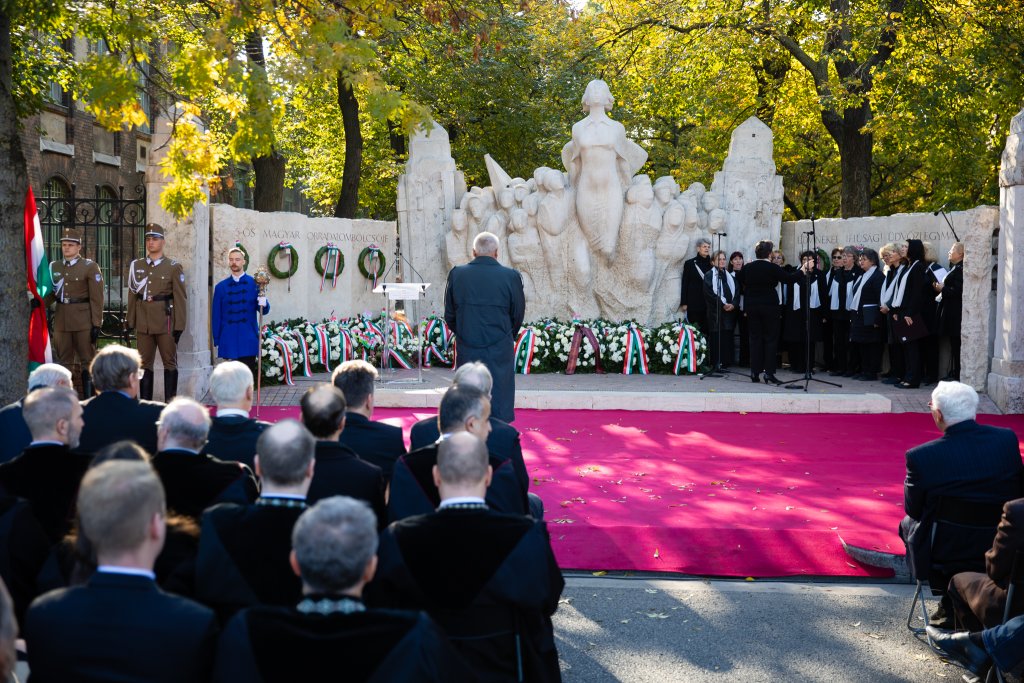
The ceremony was held in the hall of the BME, the place where the series of events leading to the revolution began 68 years ago. The students gathered here on October 22 to formulate their demands in 16 points, and the silent demonstration in solidarity with the Polish workers departed from here the following afternoon.
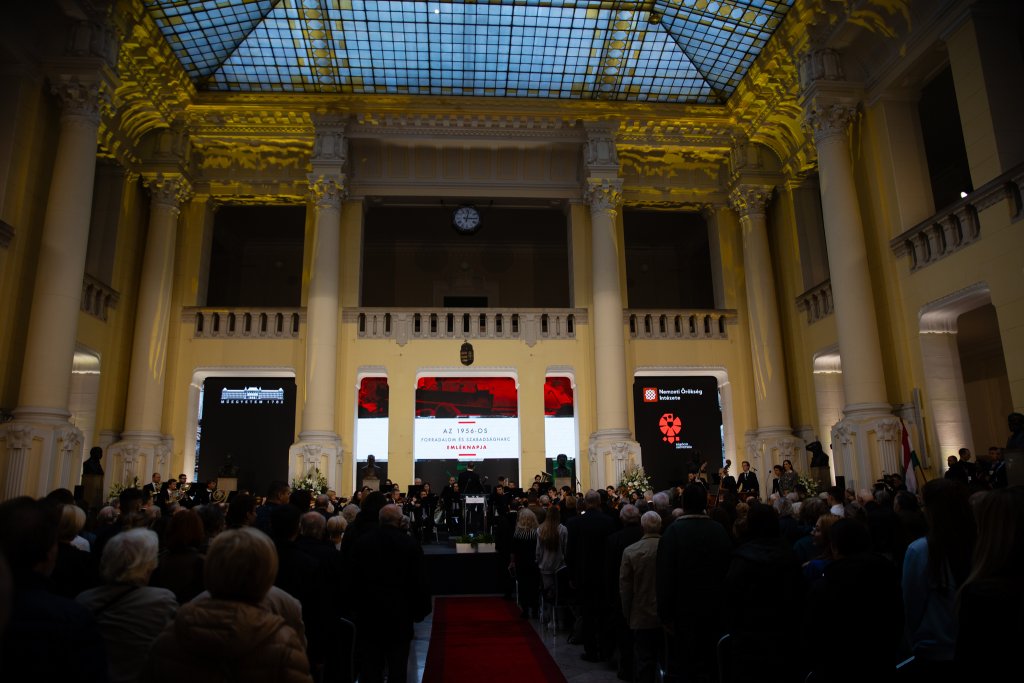
After the Hungarian national anthem was sung together, Charaf Hassan, Rector of BME, gave a speech. "Let us be very proud to be citizens of the BME, which had an initiating role in the history of the 1956 revolution and freedom struggle. There are thousands of universities in the world that train engineers, but only a few had such a decisive role in the history of an entire nation," the rector said.
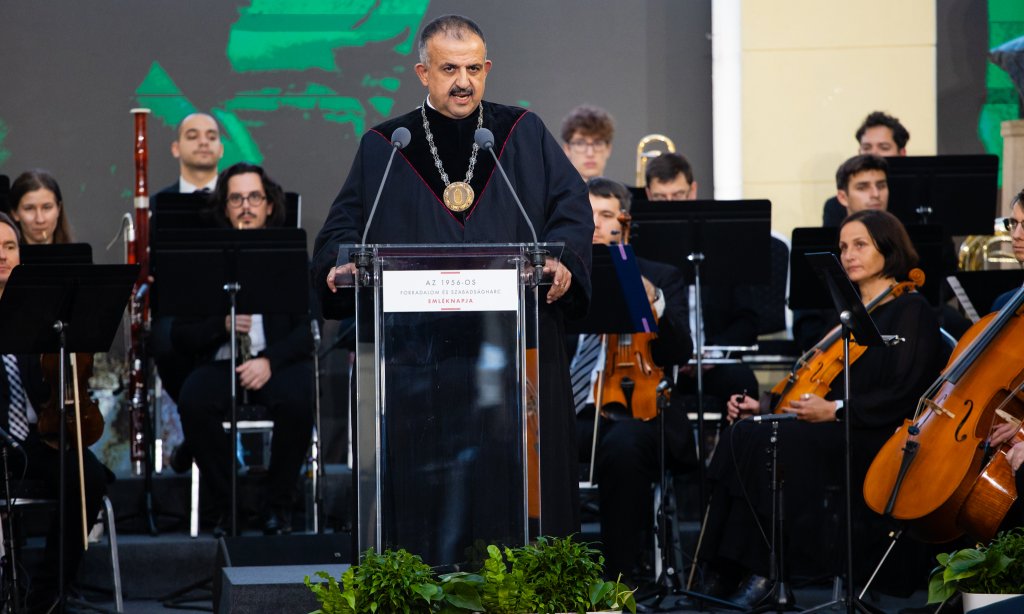
He recalled that in 1990, the lecturers, former students, and former participants of the 1956 events set the goal of preserving the memory of what happened here in 1956, which is why the Műegyetem 1956 Foundation was created. The first president of the board of trustees was Lajos Kollár, who had been dismissed from the faculty in 1957 due to his activities in the revolutionary committee. His son, Professor László Kollár, gave the next speech, but before that the audience was presented a new animated video depicting the role of the university citizens in the events of 1956. The short animated film, a work of creative professionals at the university, was supported by the Prime Minister's Office, the Lechner Knowledge Center, and the National Heritage Institute.
"I don't think my father was a revolutionary figure, he was simply honest and did what he was supposed to do," said Professor Kollár about his father, quoting the poet Yevgeny Alexandrovich Yevtusenko: "There was a strange age when honesty was called courage."
The professor continued by saying that in a world living under the pressure of the dictatorship, '56 was the alignment point that showed us that the victory of the tyranny is only temporary, and while the truth can be hidden, it cannot be destroyed. "It was also a message to the servants of power that communism will one day end."
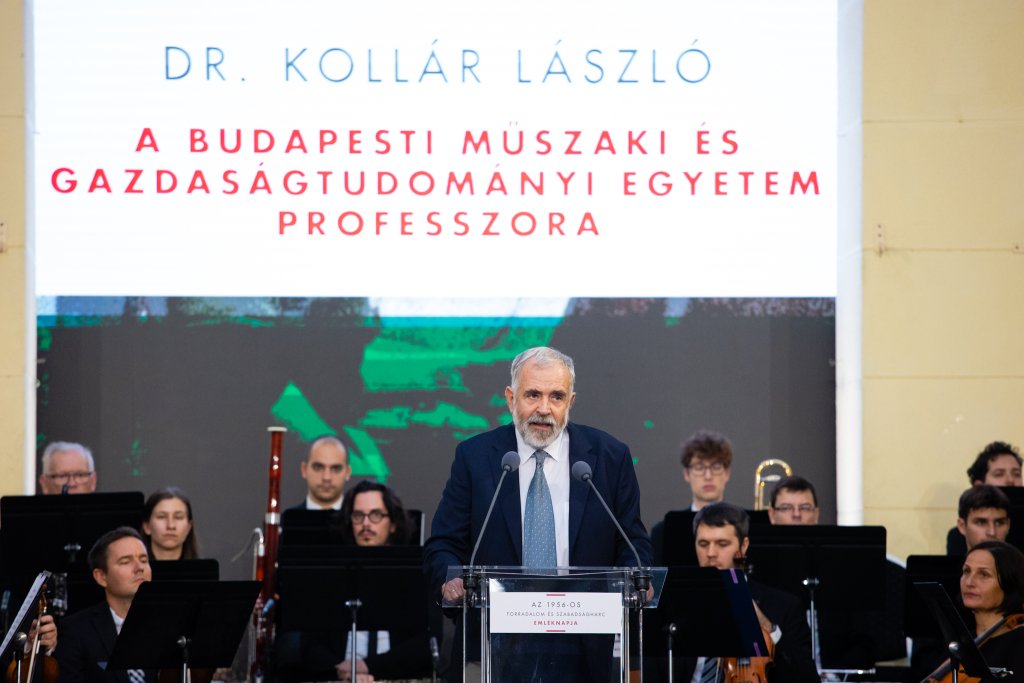
Finally, he listed what lessons he had taught himself during the decades after '56: don't be offended or feel sorry for yourself, even if there is a reason; be excellent in your profession; set a clear moral standard, never violate certain principles under any circumstances; be informed, get to know the world; pass on your knowledge, even if it is risky; leave behind the black-or-white thinking, the stigma of "us" and "them", because people are not angels or devils.
In his speech, Gergely Gulyás, the minister leading the Prime Minister's Office, recalled that the 1956 students unfurled the flag of freedom at the BME and set a new direction for Hungarian and even world history. "What happened here not only changed the course of the world, but reconnected a nation torn apart by dictatorships. (…)
The road from the University of Technology to Bem tér is the road of the revolution,"
he added.
Mr Gulyás thanked the BME for opening the gates every year on this day so that the anniversary of the revolution could be celebrated. "Freedom is worth the price, it's worth fighting for," he declared, noting that few generations made as many sacrifices for the Hungarian freedom struggle as those of 1956.
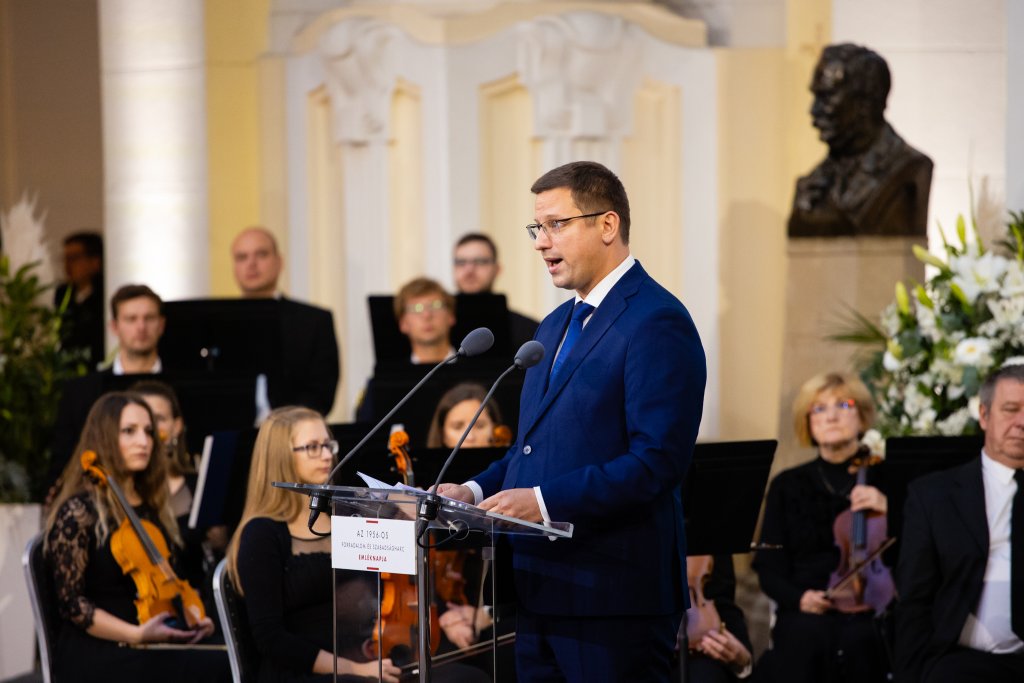
At the end of the ceremony, Gergely Gulyás, Charaf Hassan, Miklós Verseghi-Nagy, Csongor Csáky, Andor Sörös, Gábor Móczár, Géza László Sömjéni and Imre Lévai placed wreaths at the memorial plaque of the university's heroic dead.
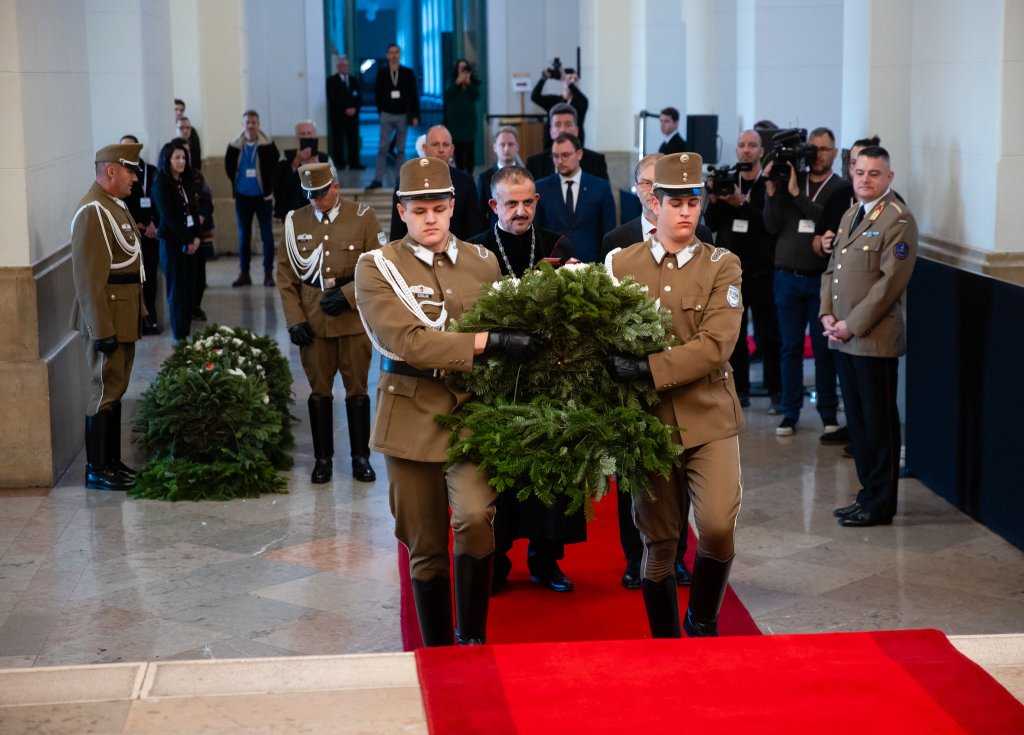
The students of the classes of 1956 then met in the ceremonial hall.
Rector's Office, Communications Directorate
